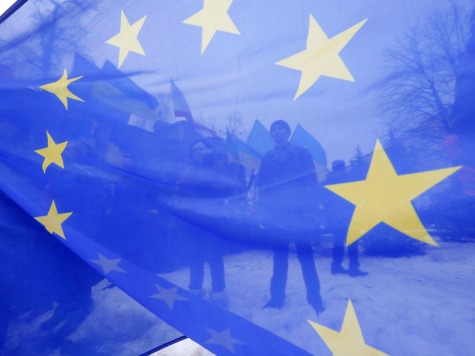As MPs in Westminster vote over recognising Palestine as a state in its own right over in Brussels, private meetings between senior figures point to possible sanctions on Israel if peace talks don’t go their way.
The vote in Westminster comes ahead of moves elsewhere in Europe to recognise Palestine as a state, most recently from the new Prime Minister of Sweden.
Leading the charge is the new EU Foreign Minister Frederica Mogherini who, as recently as the mid 1990s, was a member of the pro-Palestinian Italian Communist Party. Her new portfolio covers the Common Foreign and Security Policy and External Relations, taking over from Baroness Ashton who was the first person to take the role after the Treaty of Lisbon was ratified.

Earlier this month the EU’s External Action Service pointing towards a negative change in future EU-Israeli relations.
“We stress that the future developments of relations between the EU and Israel will depend on the latter’s engagement towards a lasting peace based on a two state solution” it said.
Such statements have led some politicians to question whether the EU has already made up its mind on what it wants the outcome to be ahead of any talks.
Senior Conservative politician MEP Dan Hannan told Breitbart London:
“It’s a bizarre decision, even by Brussels standards. No one seriously expects that a deal can be reached on the basis of an unaltered 1967 line. By putting that idea back on the table, the EU is making compromise more difficult.’
Guidelines from the European Commission for ‘eligibility of Israel…for grants, prizes and financial instruments funded by the EU’ state that
‘The EU does not recognise Israel’s sovereignty over any of the territories [The Golan Heights, The Gaza Strip and the West Bank including East Jerusalem] and does not consider them to be part of Israel’s territory.’
This means that for Israelis living in those areas no EU funding would be available. However the guidelines go on to state that ‘The guidelines do not cover EU support in the form of grants, prizes or financial instruments awarded to Palestinians in the territories [referred to above]’
The EU has already imposed sanctions on agricultural produce from anything made in the West Bank – agriculture is the main produce in that area. In 2012, exports to the EU from Israel accounted for one quarter of Israel’s total putting the livelihood of people living in the territories in jeopardy and potentially escalating tensions with worsening financial conditions
These sanctions closely mirror agricultural sanctions imposed by the EU on Russia over their actions in Crimea and the Ukraine, leading some people to question whether senior EU figures leading this policy change view Israel’s actions on a par with Russia’s.
The EU delegation to the United Nations, a senior body within the organisation, has openly called for a withdrawal by Israel to its 1967 borders.
‘The only way to resolve this conflict is through an agreement that ends the occupation which began in 1967, that ends all claims and that fulfils the aspirations of both parties.’
It seems to observers that the direction of travel is moving ever more in favour of Palestine. There is very little input from UK MEPs in the working level of these policies, since not one is a member of the European Parliament’s delegation on the Israel – EU delegation or the Palestine – EU delegation.
As the situation progresses and politicians in the USA become more aware of what is going on in Brussels, it also raises the possibility of worsening relations between the EU and the USA.

COMMENTS
Please let us know if you're having issues with commenting.